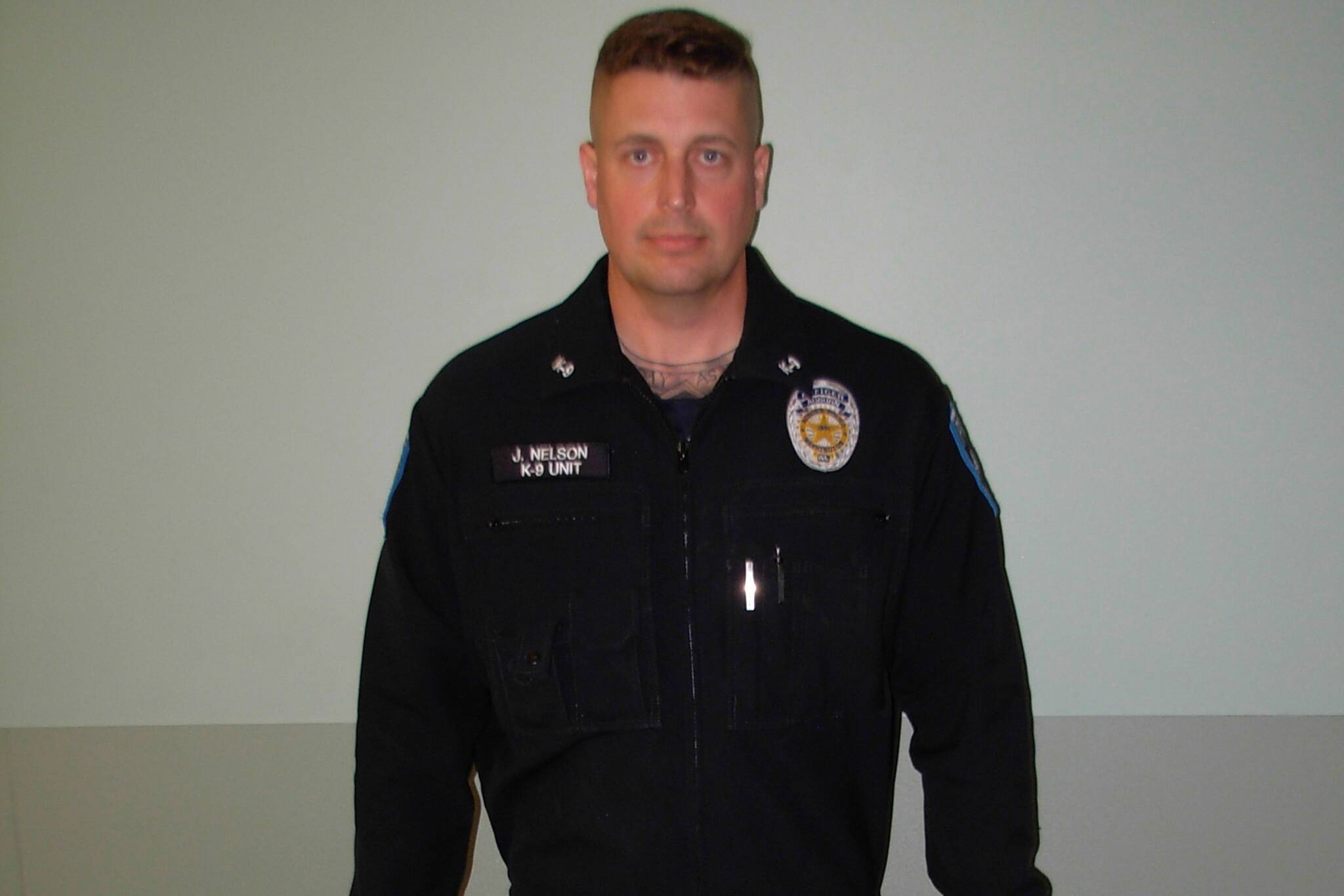Pretrial proceedings continue for Jeffrey Nelson as the embattled Auburn police officer’s attorneys argue against prosecutors for the King County Superior Court to admit evidence, while the defense team accidentally submitted confidential information as evidence.
Nelson’s defense team and prosecutors continue to fight for the admission of evidence that the court denied leading up to his trial for the death of 26-year-old Jesse Sarey.
Nelson faces a charge of murder in the second degree and assault in the first degree for killing Sarey on duty on May 31, 2019.
Nelson shot Sarey in the torso after responding to calls regarding a man demonstrating publicly disruptive behavior. Sarey resisted arrest and engaged in a struggle with Nelson. After Sarey fell back, Nelson proceeded to clear a jammed round on his gun and racked another round prior to shooting Sarey in the forehead, according to documents and video.
Judge Nicole Gaines Phelps, overseeing Nelson’s court proceedings, denied motions on May 8, 2023, for admissions of evidence from both the prosecutorial and defense team. The evidence denied included the prosecutorial team’s submissions of Nelson’s prior uses of force and photographs of his tattoos, and the defense team’s submissions of testimony regarding Sarey’s state of mind and previous instances of Sarey’s disruptive public behavior.
Nelson’s defense team filed a motion on May 18 for the court to reconsider the admission of evidence regarding testimony from a witness saying Sarey stated, “good, maybe the cops will kill me,” in response to the witness threatening to call the police.
According to documents from Nelson’s defense team, Sarey’s statement to the witness serves as a “critical part” of the defense team’s argument.
Prosecutors responded to Nelson’s team’s motion on June 23, arguing the court uphold the decision to deny Sarey’s statements to the witness on the basis that Nelson never knew about Sarey’s statements to the witness in his interaction with Sarey that led to Sarey’s death.
Prosecutors argued that the defendant’s witness demonstrated an extreme bias against Sarey, and that the danger of unfair prejudice, confusion of the issues, and misleading the jury from including Sarey’s statement to the witness outweighed functional value of serving as evidence of Sarey’s state of mind.
“This type of evidence would invite the jury to determine that Mr. Sarey was justifiably slain because of personal character traits and past history rather than what took place in the one minute when he was engaged with Nelson in front of the convenience store,” said Leesa Manion, King County Prosecuting Attorney, in the state’s response to Nelson’s motion.
Nelson’s defense team responded to prosecutors on June 28, arguing Sarey’s state of mind served as relevant evidence and functional “to understanding why he may have engaged in a physical fight when Officer Nelson attempted to arrest him.”
“The jury should be given a full picture of Jesse Sarey’s state of mind on May 31, 2019, not just the selective information proffered by the State,” stated Emma Scanlan and Kristen Murray, Nelson’s attorneys, in the defense team’s response to prosecutors.
No decisions regarding Nelson’s defense team’s motion to reconsider the admission of evidence have materialized in court as of July 25.
Accidents
On June 29, Nelson’s defense team accidentally included folders containing “confidential and privileged information” on an external flash drive submitted as evidence to the King County Superior Court.
The King County Superior Court exhibit clerk informed Nelson’s team that prosecutors requested and obtained a copy of the exhibit containing the confidential information.
Court documents provide no information regarding what confidential information Nelson’s team accidentally filed as evidence.
Nelson’s team filed a motion on July 21 to withdraw the flash drive containing the confidential information as evidence, and to substitute with a new flash drive containing the correct information.


